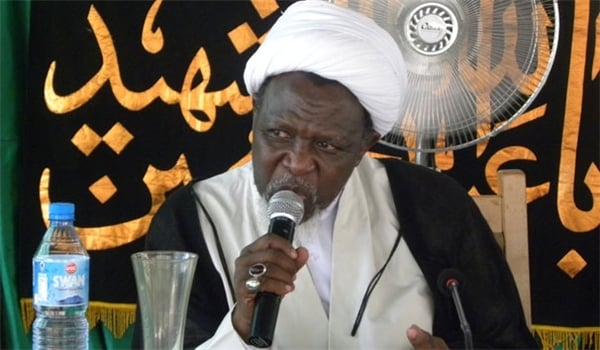Listen to the article
The Islamic Movement in Nigeria (IMN), led by Sheikh Ibraheem Zakzaky, has strongly rejected allegations of “Christian genocide” in Nigeria, describing such claims as Western propaganda designed to create division among Nigerians.
The statement comes in response to recent comments made by former US President Donald Trump, who had suggested that Christians were being systematically targeted in the West African nation. The IMN has characterized these allegations as unfounded and potentially harmful to Nigeria’s delicate religious balance.
“These claims are not only false but dangerous,” said a spokesperson for the IMN. “They attempt to frame complex socio-economic and security challenges in Nigeria as purely religious conflicts, which is a gross misrepresentation of reality.”
Nigeria, Africa’s most populous nation with over 200 million citizens, has long maintained a delicate balance between its Muslim-majority north and Christian-majority south. While religious tensions do exist, the IMN argues that portraying violence in the country as religiously motivated oversimplifies the multifaceted nature of Nigeria’s security challenges.
Security experts point out that the violence in Nigeria stems from a combination of factors including resource competition, poverty, climate change impacts on farming communities, and the activities of armed groups such as Boko Haram and bandits operating in the northwest.
The IMN, a Shia Muslim group that has itself faced persecution in Nigeria, emphasized that both Christians and Muslims have been victims of violence. In 2015, the Nigerian military conducted a raid on IMN members in Zaria, Kaduna State, resulting in hundreds of casualties, an event that human rights organizations have condemned as excessive force.
“When bandits attack communities or Boko Haram commits atrocities, they don’t distinguish between Muslims and Christians,” the IMN spokesperson added. “Both faith communities have suffered tremendously from insecurity.”
The statement also highlighted concerns about external interference in Nigerian affairs, suggesting that such narratives serve foreign political interests rather than helping to resolve Nigeria’s challenges.
International observers have noted the complexity of Nigeria’s security situation. Dr. Aisha Mohammed, a security analyst with the Centre for Democracy and Development, explained: “While religious identity can be a factor in some conflicts, most violence in Nigeria today is driven by competition for resources, governance failures, and criminal opportunism rather than religious ideology.”
The Nigerian government has repeatedly rejected the characterization of violence in the country as religiously motivated genocide. Officials point to collaborative efforts between Christian and Muslim communities to protect each other and maintain peace in many parts of the country.
Religious leaders from both faiths have also worked together to counter narratives of religious conflict. The Nigeria Inter-Religious Council, co-chaired by the Sultan of Sokoto and the President of the Christian Association of Nigeria, has been active in promoting interfaith dialogue and peace initiatives.
The IMN’s statement comes at a time when Nigeria faces multiple security challenges, including an ongoing insurgency in the northeast, banditry in the northwest, and separatist tensions in the southeast. The government of President Bola Tinubu has pledged to address these issues through a combination of military action and socio-economic interventions.
Human rights organizations have urged all parties to avoid inflammatory rhetoric that could exacerbate tensions. Amnesty International Nigeria has called for an evidence-based approach to addressing violence and ensuring that perpetrators are held accountable regardless of religious or ethnic affiliations.
As Nigeria continues to grapple with its security challenges, the IMN’s rejection of the “Christian genocide” narrative underscores the importance of nuanced understanding of the country’s complex social dynamics and the risks of oversimplification in international discourse about Africa’s most populous democracy.
Fact Checker
Verify the accuracy of this article using The Disinformation Commission analysis and real-time sources.




8 Comments
The IMN’s rejection of the ‘Christian genocide’ claims as Western propaganda is thought-provoking. It suggests there may be underlying geopolitical factors at play that are not immediately apparent. I’m curious to learn more about their analysis and perspective on this issue.
While religious tensions are real in Nigeria, the IMN seems to have a point that portraying the violence as a religious conflict alone oversimplifies a more complex situation. I appreciate their call for a nuanced understanding of the challenges facing the country.
This is a complex and sensitive issue that warrants careful analysis. I’m glad to see the IMN pushing back against the ‘Christian genocide’ claims and emphasizing the need to consider the broader context. Oversimplifying the situation could risk further inflaming tensions, so a nuanced approach is crucial.
The IMN’s statement highlights the importance of avoiding simplistic narratives and examining the multifaceted nature of Nigeria’s security challenges. Religious tensions are real, but framing the violence solely through a religious lens may overlook other critical factors. I appreciate the IMN’s call for a more nuanced understanding.
The IMN’s rejection of the ‘Christian genocide’ claims as Western propaganda is interesting. It suggests there may be more to this story than meets the eye. I’d be curious to learn more about their analysis of the situation.
Agreed, the IMN’s perspective warrants further examination. Navigating religious and ethnic tensions in a diverse country like Nigeria is undoubtedly complex, and simplistic narratives may not capture the full picture.
This is a complex and sensitive issue in Nigeria. While religious tensions exist, it’s important to avoid oversimplifying the situation and stoking further division. I appreciate the IMN’s perspective that the challenges facing Nigeria are multifaceted and not just about religion.
You’re right, it’s crucial to understand the nuanced historical and socioeconomic factors at play. Framing it solely as a religious conflict risks overlooking important context.